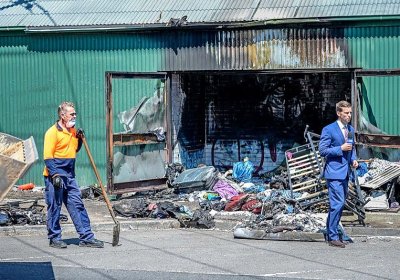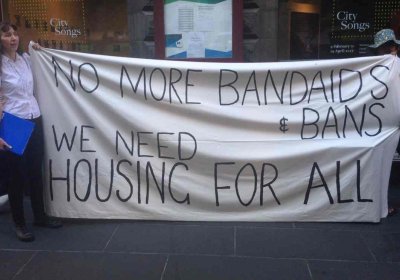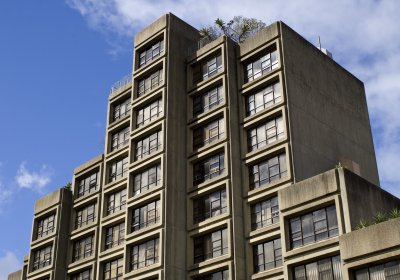Residents, unionists and supporters marched and rallied on March 19 in Millers Point, to protest the continuing eviction of remaining public housing tenants of the Point, Dawes Point and the iconic Sirius Building. The event, which attracted about 200 people, was sponsored by the Millers Point Community Working Party and the Maritime Union of Australia (MUA).
“The fight to remain in our community goes on. The fighting spirit of the elderly, the frail and the vulnerable continues the struggle,” publicity for the action stated.











